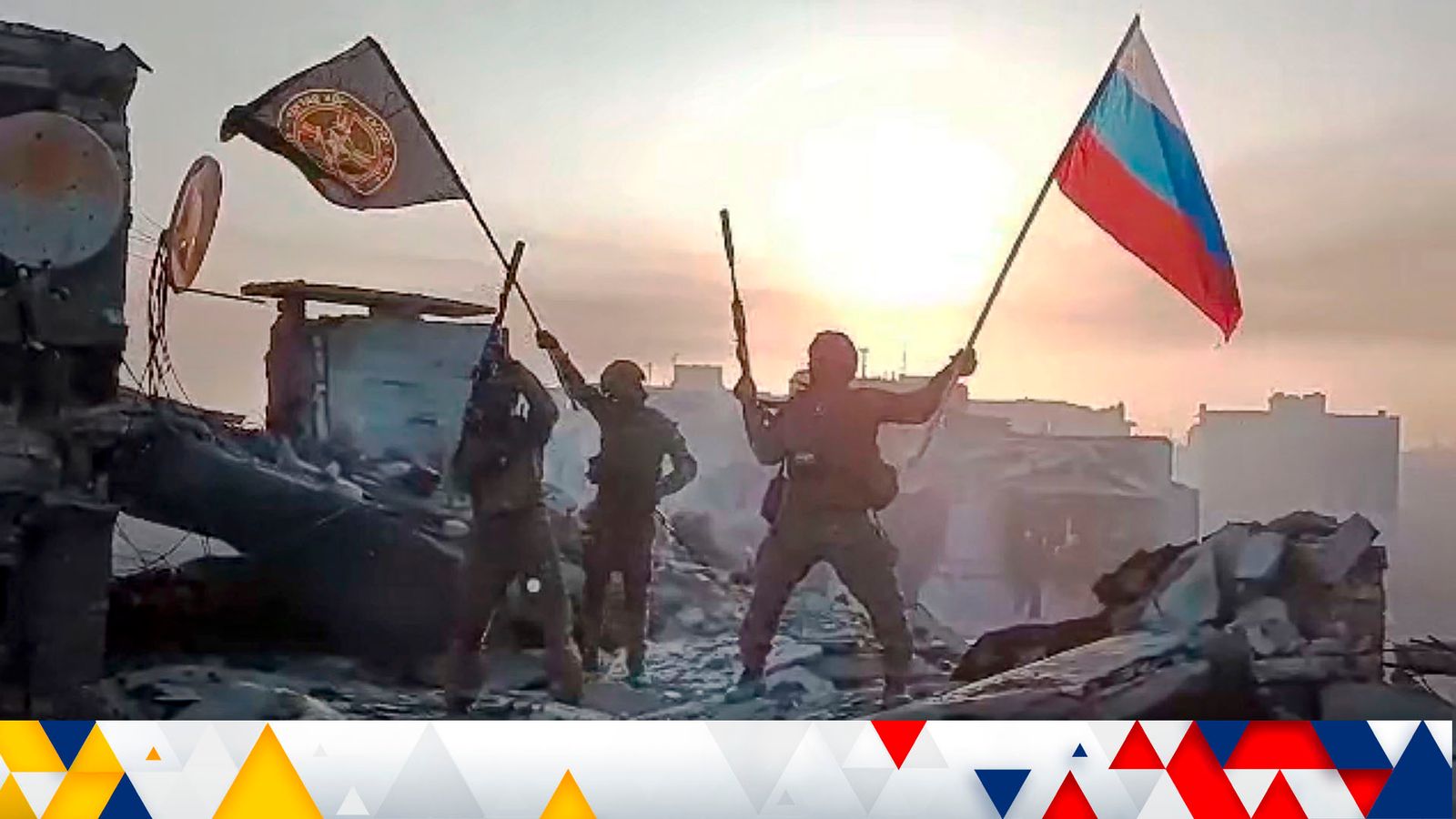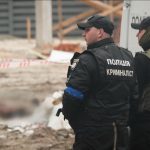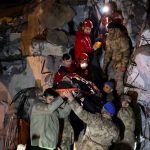An extraordinary rebellion by the head of Russia’s Wagner mercenary group could trigger the gravest domestic crisis for Vladimir Putin since his full-scale invasion of Ukraine.
Yevgeny Prigozhin, who has been a close ally of the president, on Friday accused the Russian military of killing his men in Ukraine even though they are meant to be fighting on the same side.
Ukraine war latest: Drone footage shows Bakhmut devastation
He urged a “march for justice” against the top generals, insisting this was not a military coup, though his actions prompted the security services to open a criminal investigation.
With the drama still unfolding into Saturday, it was not immediately possible to gauge the impact of the Wagner boss’s verbal detonation on the regime.
However, security has been tightened in Moscow and Putin was being briefed on events.
Be the first to get Breaking News
Install the Sky News app for free
For a president who relies on stability and obedience to stay in power, this outburst will surely at a minimum be unnerving and could lead to wider instability – though that is something the security services will be seeking to thwart.
Kremlin to prosecute Wagner boss over alleged armed mutiny – as security tightened in Moscow
Russian diplomat squatting on axed embassy site near Australia’s parliament
Evan Gershkovich: Wall Street Journal reporter accused of spying in Russia loses appeal against pre-trial detention
Another factor that remains murky is how many mercenaries will heed the call to action.
A senior Russian commander has already taken to social media to appeal to the Wagner fighters – many of them convicts with little loyalty to Prigozhin – to ignore his words.
One thing is certain, the escalating infighting on the Russian side will be a boost to Ukraine’s forces who will likely seek to exploit the disarray as they progress a major counteroffensive.
Click to subscribe to the Sky News Daily wherever you get your podcasts
The head of Wagner is no stranger to controversy.
Over the past 16 months, he has frequently ranted against Russia’s top military leaders, namely Sergei Shoigu, the defence minister, and General Valery Gerasimov, the head of Russia’s armed forces, accusing them of incompetence over the war effort in Ukraine.
His close relationship with the president – Prigozhin was dubbed “Putin’s chef” because catering businesses he also owned provided food to the Kremlin – is thought to have protected him, enabling him to make remarks that would have seen others hauled off to jail.
Please use Chrome browser for a more accessible video player
But this latest act of defiance appears to have crossed a line.
Prigozhin’s anger erupted as he accused the Russian military of targeting his Wagner forces in Ukraine with airstrikes and artillery.
An unverified video posted on a Wagner-linked channel purported to show the aftermath of an alleged Russian rocket attack against a Wagner camp in a forest.
The defence ministry denied the charge and Russian officials dismissed the video as fake.
But Prigozhin vowed revenge saying: “There are 25,000 of us and we are going to figure out why chaos is happening in the country.”
By early on Saturday, he claimed to have crossed from Ukraine into the Russian border region of Rostov with an unstated number of Wagner fighters.
“We only fight with professionals. But if something stands in our path, we will destroy EVERYTHING in our way,” Prigozhin said in a message posted in the early hours of Saturday, which was translated by the Twitter account @wartranslated.
In a series of audio messages posted on his Telegram channel, Prigozhin also for the first time rubbished the official reason Russia gave for invading Ukraine, saying it was never to de-Nazify or demilitarise the country.
Click to subscribe to the Sky News Daily wherever you get your podcasts
Read more: Who is Yevgeny Prigozhin and why does Putin feel threatened by him?
Instead, he alleged the war was needed to enable Shoigu, the defence minister, to receive a medal.
Moving to shut him down, Russian media reported that the security service, the FSB, had opened a criminal investigation into the Wagner chief over calling for armed mutiny while news broadcasts on television sought to discredit him.
The big question now is whether the state, with its immense power to control what people in Russia see and hear, can contain the fallout from this Wagner eruption or whether it marks the first sign of genuine cracks in the Kremlin.






















